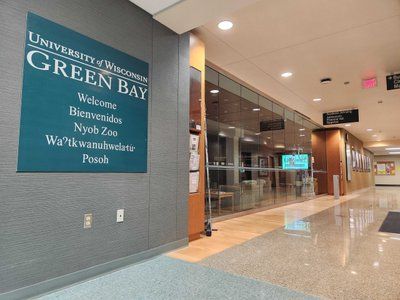By Tom Still
MADISON – At next week’s Badger Career Expo in Minneapolis, several hundred University of Wisconsin alumni in the Twin Cities area will talk with Wisconsin-based companies bent on luring them home. Meanwhile, University Research Park in Madison has launched a campaign to persuade UW grads in the science and technology worlds to expand, relocate or start a new company in the state’s signature high-tech business park.
These are two examples of creative efforts to reverse what is often called “the brain drain,” a phrase that describes the net loss of college-educated young people in Wisconsin to other states. It’s a trend Wisconsin must reverse if it hopes to build a stronger economy.
The Oct. 16 Minneapolis event is a response to a Wisconsin Alumni Association and Competitive Wisconsin Inc. survey that found 58 percent of the 2,600 UW graduates responding from Chicago, the Twin Cities, New York, San Francisco and Washington, D.C., would consider making career moves to Wisconsin. Most of those grads are Wisconsin natives who want to return home for family or lifestyle reasons. Many are now raising families of their own, and they view Wisconsin as a place with strong schools and a sense of community that’s sometimes lacking elsewhere.
Similarly, the University Research Park’s “We left the lights on!” campaign is aimed at reminding techies that Madison offers a unique combination of science, technology transfer and entrepreneurial support systems.
Of course, bringing home Bucky grads begins with finding the right jobs – which is why many of them left in the first place.
A recent analysis by Postsecondary Education OPPORTUNITY, a publication that has charted higher education trends for about 40 years, placed Wisconsin among the bottom 10 states in the net migration of people with bachelor’s degrees between 1989 and 2007. Even when reflected on a percentage basis, which takes into account the varying sizes of the states, Wisconsin ranked 36th out of 50.
Wisconsin ranks high among the 50 states in terms of bachelor’s degrees produced (15th during that period), but it has trouble retaining those graduates or attracting college grads from other states.
“The number of people age 25 and over with at least bachelor’s degrees in Wisconsin increased by 377,275 between 1989 and 2007,” according to the OPPORTUNITY report. “During that time, Wisconsin colleges and universities awarded 505,767 bachelor’s degrees,” meaning there was a net loss of 128,492 people with degrees.
Other studies have indicated that Wisconsin loses more or less than same number of home-grown college grads as other Midwestern states, but fares poorly in attracting college-educated workers from elsewhere. One explanation is that so-called “knowledge economy” workers outside Wisconsin aren’t aware of the growing diversity in the state’s economy. They believe, incorrectly, that most job openings in Wisconsin require only moderate skills.
That’s no longer the case. Consider manufacturing, a sector in Wisconsin that still boasts more than 500,000 jobs. The average manufacturing sector worker today is also a technology worker, a member of an internal team and a problem-solver. It’s not your father’s factory floor anymore.
The state’s high-tech sectors also continue to grow. Health care, biotechnology and medical devices are sectors that have grown sharply over the past 10 years, along with information technology, nanotechnology and, most recently, biofuels and bioproducts. The need for skilled workers in those “knowledge economy” fields will continue to expand.
What’s the answer? Creative programs targeting specific types of Wisconsin grads will help, of course, but the long-term answer is staying focused on expansion of the “knowledge economy.” Policymakers in Wisconsin should support state strategies – educational system goals, workforce development, fostering entrepreneurism and attracting capital – that focus on building the right kinds of jobs.
“States can build college-educated workforces in two ways,” read the OPPORTUNITY report. “By higher educating their homegrown population, and/or by attracting college graduates educated elsewhere… Those states that have built strong (“knowledge economies”) that employ college graduates are able to attract college-educated workers from other states. States that have not built economies through industries that employ college graduates are generally lagging in economic development measures.”
Specific strategies for slowing Wisconsin’s brain drain have emerged in recent years. Given time to work, they will help the state fight through today’s tough times and build a more prosperous future.
Still is president of the Wisconsin Technology Council. He is the former associate editor of the Wisconsin State Journal.
###





